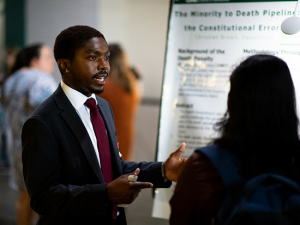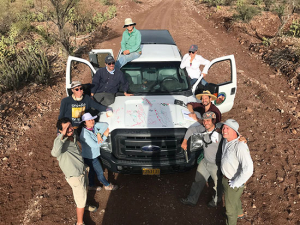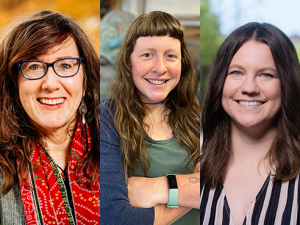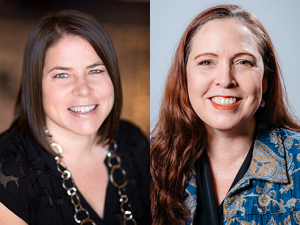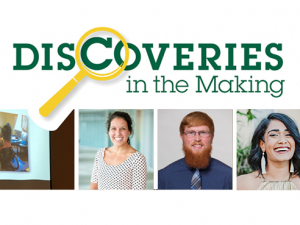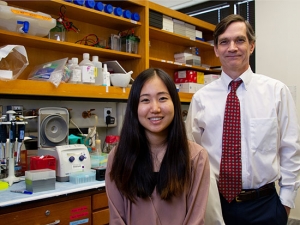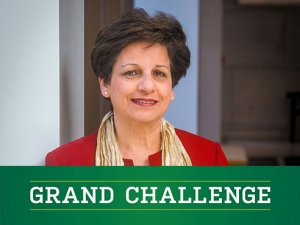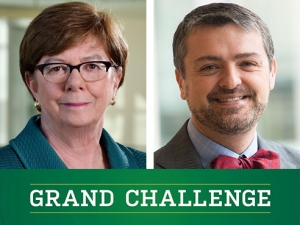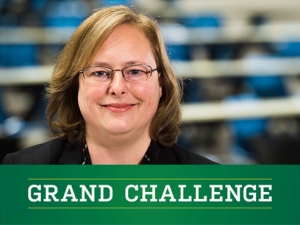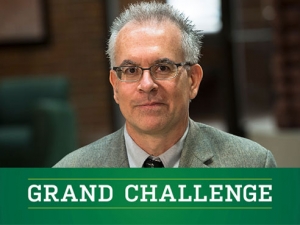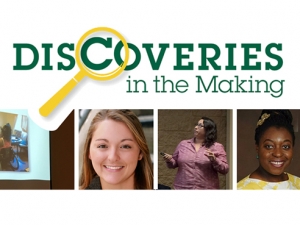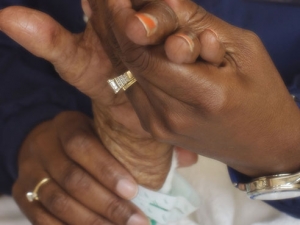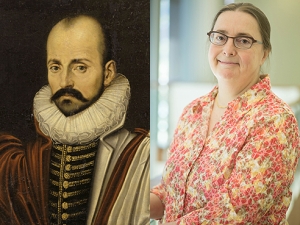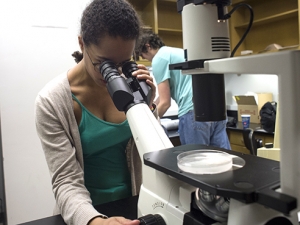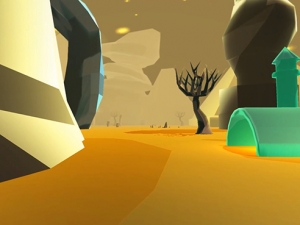by Haley Herfurth
 Open Access to information, or the free, immediate, online access to the results of scholarly research, and the right to use and re-use those results as needed, plays a crucial role in making advances in research and scholarship equitability, says Jeff Graveline, J.D., professor and associate dean for Research and Scholarly Communication and director of the Office of Scholarly Communication in UAB Libraries.
Open Access to information, or the free, immediate, online access to the results of scholarly research, and the right to use and re-use those results as needed, plays a crucial role in making advances in research and scholarship equitability, says Jeff Graveline, J.D., professor and associate dean for Research and Scholarly Communication and director of the Office of Scholarly Communication in UAB Libraries.
UAB employees and students can access millions of online resources with just their BlazerID and password — but those same resources would come at a high cost to unaffiliated individual scholars, clinicians, patients, consumers, policymakers and others who could benefit from accessing resources. When scholarship is published as Open Access — such as in well-known and highly cited journals like ones found in the PLOS and Frontiers collections — it removes that financial barrier and better enables the sharing of important information.
“Open Access levels the playing field among researchers and scholars,” Graveline explained. “It’s different from the traditional publishing model because it’s available on the open web for no charge anytime, anywhere in the world, for anyone to use.”
1. Apply for funding to cover APC charges
Unlike traditional publishing systems, Open Access journals do not require a subscription to access paywalled resources; to offset that loss of revenue, most OA publications collect what is called an Article Processing Charge in order to publish.
To better enable and encourage UAB faculty, staff and students to consider Open Access publishing — or the free, immediate, online access to the results of scholarly research, and the right to use and re-use those results as needed — the Office of Scholarly Communication continues its Open Access APC Fund Program, launched in 2022.
The program awards funding of up to $2,000 on a first-come, first-served basis to Blazers during the 2023-24 fiscal year who seek to publish their work in Gold Open Access publications, or ones that are permanently and freely available online and accessible to all; $20,000 total in funding is available for 2023-24. Financial support comes from UAB Libraries, the UAB Heersink School of Medicine, and the UAB School of Health Professions.
Submit applications using the APC Funding Request Form.
2. Publish at no cost in Wiley, Cambridge journals
UAB Libraries also can publish open access in Wiley and Cambridge journals at no cost — an agreement which has saved UAB authors approximately $350,000 in APC charges with Wiley since Jan. 1, 2023. The agreement with Wiley enables lead or corresponding authors affiliated with the university to publish open access in any fully open access or open access hybrid Wiley journals and fully open access Hindawi journals — nearly 2,000 journals total — at no cost to the author. UAB also has a similar agreement with Cambridge University Press, which waves article processing charges for UAB-affiliated authors when publishing in Cambridge open access and hybrid journals.
Charles Amsler, Ph.D., professor of biology, has used the APC Fund Program for two papers, one in Antarctic Science, a Cambridge publication, and another in Journal of Phycology, published by Wiley — both papers were from the dissertation of his former doctoral student Sabrina Heiser. Amsler also serves on the editorial boards for both publications.
“I am a strong supporter of journals published by scientific societies or similar not-for-profit entities, which both these journals are, and that is a significant — though not only — factor in choosing where to submit the work from my group,” he explained. Journals such as Antarctic Science and Journal of Phycology publish a mix of paywalled and open access papers.
“I was thrilled to have the opportunity to publish these papers open access through UAB’s agreements,” he continued. “Making them immediately, freely available to anyone to read should allow more investigators, particularly in under-resourced institutions or countries, to learn of our work and, hopefully, apply what we have learned to their own projects.”
3. Contact the Office of Scholarly Communication
Do you have questions about making your work more accessible through Open Access publishing? The Office of Scholarly Communication can help. And that’s not all they do — the OSC can answer questions from Blazers working to establish publishing agreements and understand copyright guidelines, plus provide guidance on incorporating affordable instructional materials into courses.
During the last year, the OSC expanded to include research data management services, offering consultations with researchers to prepare data management plans or select repositories for data. The office also provides instruction on how to organize, document and properly safeguard research data to benefit both research teams and the wider research community long-term.
Learn more about the OSC online.
Register for Open Access Week seminar Oct. 23
This year’s International Open Access Week is centered on the theme “Community over Commercialization,” encouraging a candid conversation about which approaches to open scholarship prioritize the best interests of the public and the academic community.
Access for All: Current Conversations in Open Access
Hear Alabama librarians discuss current events and news related to open access and provide updates on trends and challenges — all while exploring the role academic libraries play in this rapidly evolving landscape. The panel will be moderated by Marla Hertz, Ph.D., research data management librarian in UAB Libraries.
Panelists:
- Charlotte Ford, Ph.D., director, Carmichael Library, University of Montevallo
- Jeff Graveline, J.D., associate dean for Research and Scholarly Communication and director of the UAB Libraries Office of Scholarly Communication
- Jenn Pate, Open Education Resources and Scholarly Communications Librarian, Collier Library and Information Services, University of North Alabama
Event details: 11 a.m. Oct. 23; register online
